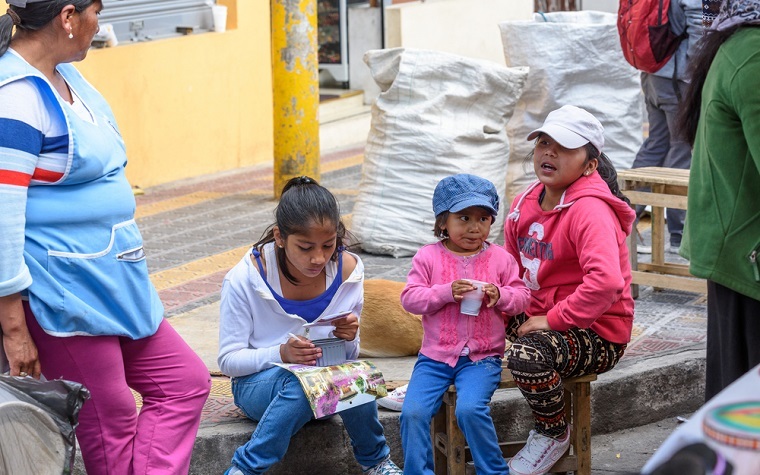The poverty rate in Latin America and the Caribbean declined to 5.6 percent in 2014 compared with 6.2 percent in 2012, according to data released this week by World Bank President Jim Yong Kim who is in Lima, Peru, for the World Bank-International Monetary Fund annual meetings.
The Latin American and Caribbean population in 2014 was about 525 million, according to figures from the World Bank.
“In Latin America ... various programs which combine elements of a strategy based on growth, investment and insurance are being implemented,” Kim said in a speech just before traveling to the region. “During the second half of the 20th century, Latin America was one of the most unequal regions in the world but in the 21st century the situation has improved."
Created in 2005, the program Juntos (Spanish for “Together”) in Peru has reached a half-million poor families that received funds with the condition that they take their children to monthly health and nutrition checks.
¨Economic growth in the countries in the region led to an increase in hourly wages and the governments adopted diverse policies that have remained in place: the application of labor contracts and minimum salaries, greater access to schools, progressive educational spending to favor the poor, pensions and above all monetary transfers as opposed to regressive subsidies to fuels,” he said.
Another program in Mexico involves a mechanism under which beneficiaries can save one-fourth of their income to invest in a small company, he said. And in Brazil, there is a program that has benefited 14 million families and contributed to a reduction of poverty by 28 percent during the last decade at a cost equivalent to 0.5 percent of the the country´s gross domestic product.
“In all the southern hemisphere, 15 percentof the reduction in inequality can be attributed to this type of progressive transfers of social protection,” he said.
He warned that health is a key area to help alleviate poverty, in countries south of the border and in the United States, as well.
“There are too many people to whom just one disease or one accident can throw them into indigence, even in a rich country like the United States,” he said. Developing good networks of health insurance is key to prevent this, he said.
After his arrival to Latin America on Monday morning, Kim visited a mental health care center in a poor district in the north of Lima. He said he was a volunteer doctor in this district 20 years ago.
Peru was chosen to hold the meetings because it has much to teach the world in terms of “improving and expanding social programs” in addition to its compromise with “prudent” macroeconomic policy, he told reporters in Lima.

 Alerts Sign-up
Alerts Sign-up